Buying a home for beginners- 10 terms you need to know!
If you are ready to buy a home, then there are certain things that you need to know. Even if you don’t care to know about this stuff — guess what? You still need to learn about it if you’re buying a home (the same applies if your spouse knows the ins and outs — you still personally need to learn it).
- Real Estate Agent
A real estate agent is a licensed professional who helps the buyer or seller in the house-purchasing process. Most agents work for a real estate broker or realtor. As a buyer, you want to hire a good real estate agent when you are buying a house, like one of our agents at Boise Premier!
- Adjustable rate vs. Fixed rate
An adjustable rate mortgage (ARM) offers homebuyers with a low interest rate on their loan for an initial period, after which time, the interest rate increases or fluctuates for the remainder of the loan. This loan transfers the risk of rising interest rates to the buyer.
A fixed rate mortgage means that the interest rate on the mortgage is fixed at a specific rate for the entire life of the loan. For example, if you have a 15 year fixed mortgage at 4%, this means that your loan is for 15 years and your interest rate will be 4% for the full 15 years, regardless of the market.
- Prepayment penalty
A prepayment penalty is a clause that will be in your loan documents (if it exists at all). A prepayment clause says that you will pay a penalty for repaying your debt early.
- Appraisal
A home appraisal is an examination of the value of the property done by a real estate appraiser. An appraiser determines the monetary value of the property. You will need to pay for a home appraisal in order to provide your lender with the value of the property for which you are trying to purchase in order to get financing.
- Inspection
A home inspection is an examination of a home done by a home inspector to determine the condition of the home at the time of inspection. You will need to pay for a home inspection if you’re buying a house.
- Offers and Counter Offers
When you buy a house, you will make an “offer”, which is an offer to buy the house. The seller may accept your offer or reply with a counter offer, which will state different conditions than what you offered.
- Home Warranty
A home warranty includes basic coverage over certain things that may go wrong, such as plumbing, electrical, heating, and major appliances. The warranty is for a certain amount of time (like one year) and you have to pay for it up front if you want it.
- Closing costs
Closing costs are fees paid at the closing of the transaction. Closing costs can be paid by the buyer or seller and they can be part of the negotiation process. Closing costs can be thousands of dollars, so don’t forget about them!
- Home Loan Documents
“Home loan documents” refers to the documents relating to the mortgage issued by the lender to you, the buyer. These documents include: 1) note, 2) mortgage, 3) loan application, and 3) Truth-In-Lending Disclosure (TILA). There may be other documents included. It’s always a good idea to read the documents yourself and consider having an attorney read them for you, too.
- Transfer Documents
“Transfer documents” refers to the documents relating to the transfer of ownership from the seller to the buyer. Most documents will be signed by the seller and delivered to the buyer for your review. Documents include: 1) deed, 2) bill of sale, 3) affidavit of title (or seller’s affidavit), 4) transfer tax declaration, 5) transfer tax declaration, and 6) buyer / seller settlement statement. It’s important that you do your due diligence and read through the transfer documents to make sure everything says what it should say.

